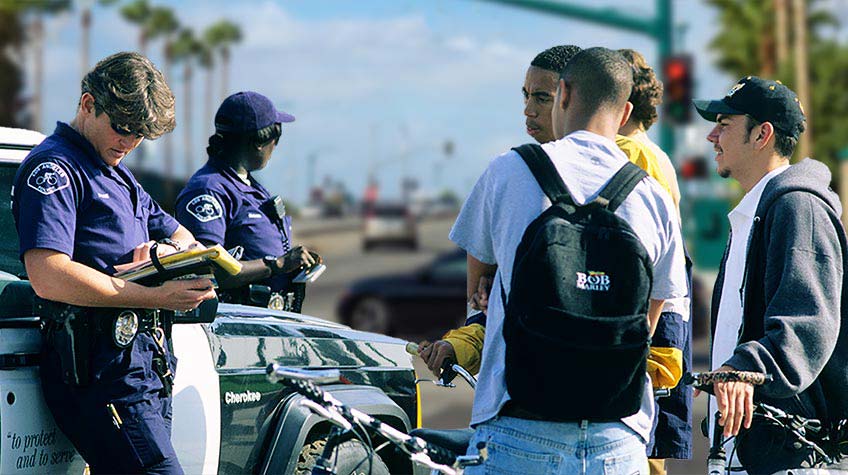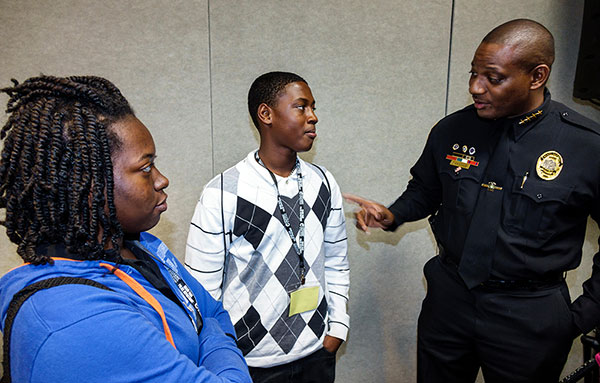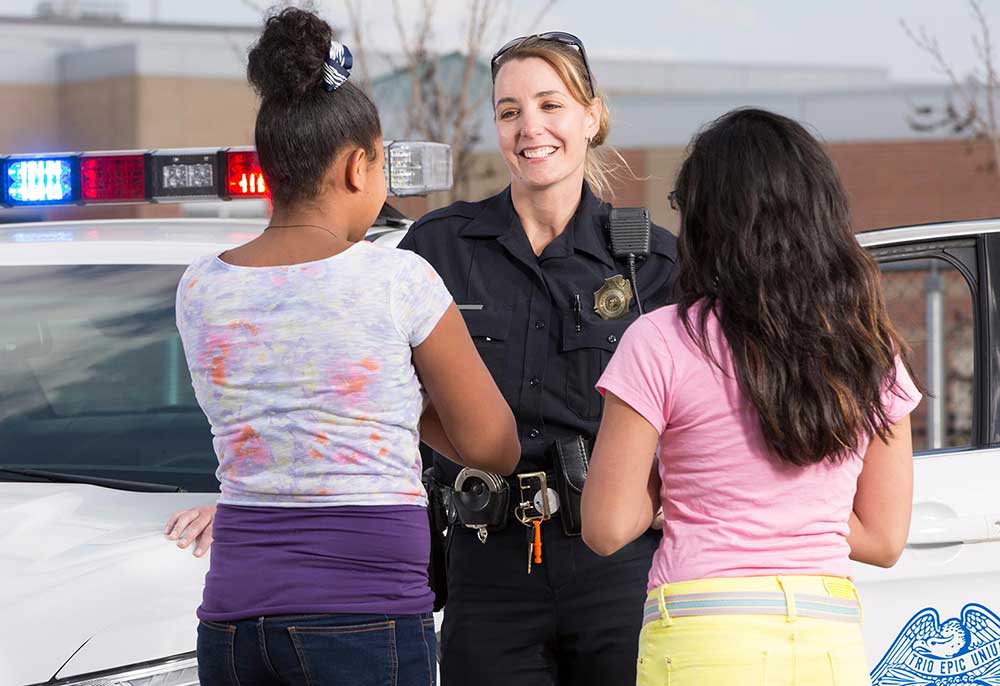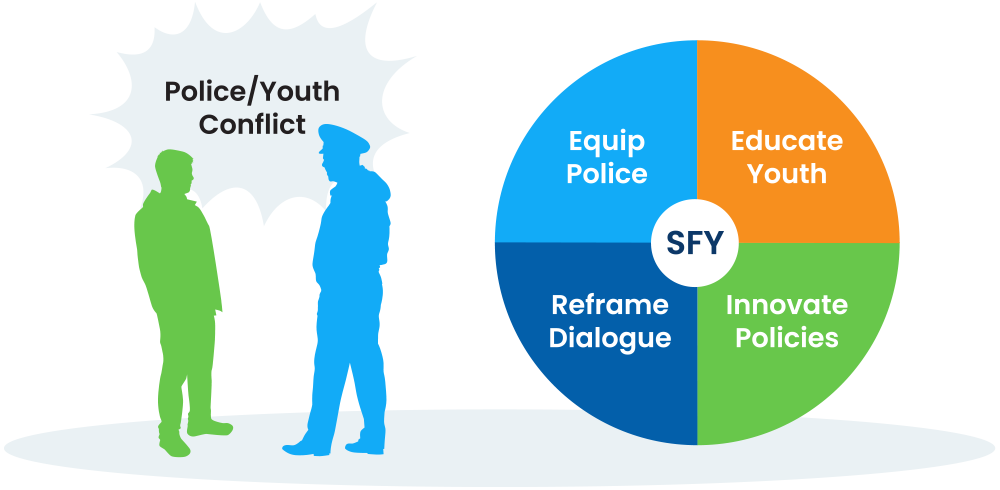
In 2023, U.S. law enforcement
agencies made an estimated 410,000 arrests of persons under age 18.
Forty percent of youth arrests are for minor or “contempt of cop” offenses with no underlying crimes.
Youth of color are nearly two times more likely to be arrested. LGBTQ, foster care and immigrant youth are also more likely to be arrested.

Trauma also affects the teen brain. An estimated 70–90% of youth in the criminal legal system have experienced trauma (e.g., physical or sexual abuse, witnessing domestic violence, and exposure to violence in school or the community).
Young people’s futures are at stake. Youth involved with the juvenile justice and criminal legal systems are at high risk for dropping out of school, substance use, homelessness, early pregnancy, and criminal behavior as an adult.

There’s scientific reason for that: a young person’s brain won’t be completely developed until age 25.
Despite what we know about kids’ brain development, training for encounters with youth amounts to 1% or less of the total training officers receive. Very few of the 18,000 U.S. law enforcement agencies have adopted policies that direct officers to differentiate their responses to youth from adults.
Police work becomes even more difficult when there are contentious interactions between police and kids, and when there are racial disparities in policing. Trust with the community is also compromised and hard to heal.
Strategies for Youth is a national policy and training organization dedicated to ensuring best outcomes for youth interacting with law enforcement. We train officers, work with law enforcement agencies, and engage with youth-serving agencies in 25 states and expanding.

Strategies for Youth is a national policy and training organization dedicated to ensuring best outcomes for youth interacting with law enforcement. We train officers, work with law enforcement agencies, and engage with youth-serving agencies in 25 states and expanding.
Strategies for Youth creates pathways for improving police/youth interactions
by using training tools and outreach programming to move officers and
youth from conflict to safer interactions.

In communities where Strategies for Youth has worked, we’ve seen that developmentally appropriate, trauma-informed, and racially equitable training for youth and law enforcement officers and agencies can lead to
SFY also works to raise the profile of this issue and to improve policy for police/youth interactions. We conduct and publish research. And we have translated this into 12 Model Law Enforcement policies to guide interactions with youth.
Strategies for Youth has developed a set of 12 model policies that every law enforcement agency should adopt to ensure officers use developmentally appropriate, trauma-informed, racially equitable approaches to policing youth.
Young people’s brain development and behavioral capacities are different. Therefore, law enforcement must treat young people differently than it treats adults. Police practice should reflect what science has proved and support the Supreme Court’s acknowledgement of these differences.
Right now, most law enforcement agencies have no policies to guide agency and officers’ responses to, and interactions with, youth. Yet a poll commissioned by SFY in 2023 shows that most Americans assume law enforcement agencies have both training and policies for proper interactions with youth.
SFY fills this policy gap, and thus remedies recurring problems in youth policing practices, with its comprehensive set of 12 policies that can be immediately accessed by law enforcement agencies across the country. All policies that SFY proposes are carefully articulated, well-supported by research, and vetted by national, regional, state, and local level stakeholders.
Please sign up for our newsletter to the latest on Strategies for Youth’s efforts to create safe and thriving communitities for our children.
